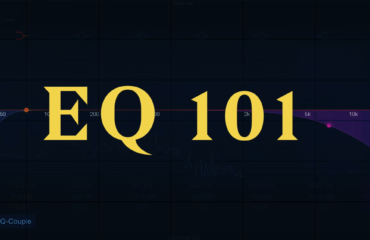As the number of emerging music producers continues to grow, many are seeking effective management to streamline their journey towards success. If you’re considering jumping on board, it’s essential to acquaint yourself with the various facets of having a manager by your side. Understanding these aspects will not only simplify your path but also enhance your chances of achieving greater heights in the industry.
Team Up for Triumph: Benefits of a Producer Manager
Explore how a manager can assist you as a producer by providing the following advantages:
Facilitates smoother communication between you and industry professionals
Discover how a music manager facilitates smoother communication between artists and industry professionals such as labels, agents, radio stations, and music journalists.
- Overcoming barriers: In the industry, direct communication between artists and professionals can be challenging. You may have personally encountered unanswered calls and difficulty receiving call-backs. However, with a music manager on your side, these barriers are mitigated;
- Open dialogue: Professionals who hesitate to discuss your music directly often find it easier to engage with your manager. They perceive managers as objective and less emotionally involved, fostering more open, honest, and productive conversations;
- Honest feedback: Journalists and industry insiders may be hesitant to express their dislike for your music directly to you, leading to ignored calls and missed opportunities. However, they are more inclined to share their thoughts with your manager, allowing for constructive feedback and potential areas of improvement;
- Smooth communication channel: By entrusting your manager with communication responsibilities, industry professionals can easily reach out to discuss music, collaborations, and relevant matters. Your manager’s role ensures prompt and professional responses, freeing you to focus on your creative pursuits.
Enhances your credibility and reputation
Having a dedicated manager to represent you as an artist offers several credibility-boosting benefits. Consider how it enhances your professional image and attracts others to collaborate and do business with you.
Implies a high level of professionalism in your actions
Individuals will readily reach out to your manager via phone calls or emails regarding your music, schedules, and other related subjects. Their assumption is that your manager is responsible for promptly and professionally addressing their inquiries, allowing you to focus on the creative aspects of your work.
Facilitates the handling of sensitive business matters among band members
Within a band, members often encounter difficulties when addressing sensitive matters among themselves. Disputes arise regarding task assignments, and heated discussions regarding financial issues are inevitable.
When you spend extensive hours collaborating on your music, occasional tensions and disagreements are bound to arise, resulting in clashes between band members.
A capable manager can effectively unite all of you and ensure harmonious cooperation. It is their responsibility to ensure smooth functioning, preventing wasteful arguments and heated debates within the band.
By hiring a manager, you can largely avoid such conflicts. Your manager will handle all business-related aspects, allowing you and your fellow bandmates to concentrate on your primary objective—creating music.
Allows you to fully focus on your music without any distractions
Creating and promoting music requires substantial effort. It involves coordinating with music venues, securing media coverage for upcoming concerts, collaborating with designers, contacting radio stations for airplay, organizing gigs, managing social media, making phone calls, and handling a constant influx of emails. These demanding tasks often leave you exhausted, leaving little time and energy for writing and rehearsing your music.
Fortunately, these responsibilities can be delegated to a capable manager. You shouldn’t be burdened with the administrative aspects of your profession or the logistical challenges they entail. Your primary focus should be on your music.
By hiring a manager, you can liberate yourself to fully embrace your role as a musician. Imagine the heightened productivity that comes from dedicating yourself solely to your craft. Envision the vast possibilities that open up when your sole focus is on creating music.
Provides you with invaluable guidance and clarity
By hiring an experienced manager, you gain access to invaluable wisdom to navigate the often unpredictable music industry.
While you are not obligated to follow your manager’s advice, it is highly beneficial to heed their insights and knowledge. Their guidance is rooted in actual industry experience, offering valuable lessons that are not commonly found in books or online articles.
Securing a seasoned, astute, and wise manager may not always be immediate, especially if you are a new artist. However, even if you hire a friend or a manager with limited experience, it doesn’t mean they cannot provide credible insights or suggestions. They can still assist you in finding effective solutions. Remember, two heads are often better than one in solving challenges.
What is the Role of a Producer Manager?
A producer manager primarily handles the business aspects of your career, allowing you to focus on the creative process of music production while they handle everything else. The specific tasks and responsibilities of a producer manager can vary widely depending on your existing achievements as a music producer and the expertise of the manager you hire.
However, in general, the key responsibilities of a producer manager typically encompass the following:
- They handle phone communications
Phone calls often play a crucial role in initiating successful business interactions. This holds true in the music industry as well. Making well-crafted and effective phone calls can open numerous doors for you.
Engaging in phone conversations is essentially sales pitching, and it is an integral part of your music business. Your producer manager takes charge of making and receiving these calls, utilizing strategic dialogue to maximize opportunities.
- They manage email correspondence
A significant portion of communication in the music industry, as well as in many other businesses, occurs through email, often on the go. Handling email communication is a key responsibility of a producer manager. They communicate with various individuals using portable email to drive progress on your behalf.
They contact their connections via email to explore available projects. They correspond with label administrators for backend matters. They communicate with publishers, lawyers, and other artists’ managers to discuss pertinent issues related to your career.
- They attend to administrative tasks
Engaging in a multitude of non-creative paperwork can be burdensome for you. That’s where your producer manager steps in. They take care of administrative matters on your behalf. This includes tasks such as invoicing, budget preparation, timely submission of album/song credits to the record label, and maintaining a pleasant and professional relationship with record labels to ensure smooth fee and royalty collection.
- They act as your liaison with key individuals
Your producer manager serves as your liaison officer, regularly communicating with your accountant, business manager, or lawyer. They ensure that your bills and taxes are properly managed by your accountant. They oversee contract preparations by your lawyer for your client song productions.
They engage with music publishers to ensure proper royalty collection. They discuss important business matters such as licensing and budgets with various executives from your record label. They promote your skills to artists and their managers. A producer manager covers diverse areas of your business by fostering positive relationships with various individuals.
- They cultivate and expand your network for success
Recognizing the importance of networking, your producer manager assists you in building and nurturing relationships that contribute to your success as a music producer.
They ensure your presence at key industry events, schedule meetings to introduce you to valuable executives, and arrange important discussions and planning sessions with key individuals to drive your career forward.
What Attributes Does a Producer Manager Seek in a Client?
Not all music producers require a manager. If you are new to the music production industry and lack a substantial fan base or demanding schedule, it may not be necessary to hire a producer manager. However, a producer manager can not only handle the business aspects of your job but also contribute to the growth of your career.
The music production landscape is highly competitive, with countless producers vying for recognition in clubs, studios, and offices, distributing their beats or music CDs, aspiring to be the next Timbaland, Pharrell Williams, or Dr. Dre. The competition is further intensified by artists constantly seeking fresh, promising, and distinctive music material.
Experts recommend that collaborating with a producer manager is a strategic move if you aspire for a successful career. This holds particularly true if you possess talent and the opportunity to have your music placed with an artist.
A producer manager’s role extends beyond handling administrative and day-to-day activities. They also assist in mapping out your long-term career goals.
However, securing the services of an experienced and skilled producer manager is not an easy feat. Many producer managers are discerning when it comes to selecting which music producers to work with.
What are Producer Managers Seeking in a Client?
- They seek clients whose work stands out as unique and distinct from other talented producers.
- Successful music producers are often driven to develop their own signature sound or create a distinctive sonic identity. Their work possesses a distinctiveness that sets it apart from other producers.
For instance, Dr. Dre doesn’t strive to sound like Timbaland, and hip-hop legend Mannie Fresh has his own distinct style separate from The Neptunes. Exceptional producers, particularly in genres like hip-hop, strive to cultivate a sound that is unmistakably their own. This is one of the key factors that producer managers look for in potential clients.
- They seek clients who share a strong work ethic and drive.
Work ethic and drive hold significant importance for many producer managers, alongside creativity and artistic talent. Some producer managers may decline to represent a producer, regardless of their brilliance, if they perceive a lack of dedication, hard work, and diligence essential for achieving success. They believe that without the necessary drive, even a promising producer may not reach their full potential.
- They consider clients who are members of performance rights societies.
Joining organizations such as the Society of European Stage Authors and Composers (SESAC), Broadcast Music, Inc. (BMI), or the American Society of Composers, Authors, and Publishers (ASCAP) in the United States, or the Performance Rights Society (PRS) in the United Kingdom, can be beneficial. Being a member of these societies facilitates networking opportunities, as they organize monthly events specifically designed to support producers and songwriters. Producer managers often attend these events, increasing the likelihood of meeting potential clients.
It is also worth exploring events organized by the National Academy of Recording Arts and Sciences (NARAS) in the United States or the Music Producers Guild in the United Kingdom.
Where Can You Encounter a Producer Manager?
Producer managers can often be found in various settings if you know where to look.
- Recording sessions
Many producer managers accompany their clients or other artists to recording studios. By attending a recording session, you increase your chances of crossing paths with a producer manager.
Utilize your connections to secure a pass to a recording session. Bring an MP3 player with your work, as you may have the opportunity to have a producer manager listen to your music. If they are impressed, they may consider taking you on as a client.
- Industry events
Consider becoming a member of music societies or clubs, as they provide valuable access. Attend industry events such as “meet and greet” functions, open mic nights, seminars, conferences, guest speaker engagements, and round table discussions. These occasions offer excellent opportunities to meet potential producer managers.
Make a positive impression during these events. Engage in conversations, ask intelligent and thoughtful questions during lectures, and share interesting opinions. By capturing people’s attention, you increase your chances of introducing yourself to a producer manager or even having one approach and introduce themselves to you.
- Music retail stores
Music industry professionals often frequent stores that specialize in selling music equipment and gear. These stores serve as meeting places for like-minded individuals who engage in discussions about merchandise, forge friendships, and exchange contact information. Regular visits to your local music shop could potentially lead to encountering a producer manager and striking up a conversation.
A Perfect Partnership
Meeting a producer manager is one thing, but finding an exceptional one with whom you share a strong connection is another challenge altogether. It requires seeking someone whom you can trust, making the mission even more demanding.
Many successful producers possess incredible talent and creativity but may lack the business acumen or assertiveness required. When you pair such a producer with a producer manager who possesses invaluable knowledge, skills, and a focus on the business side of things, it creates a match made in heaven.
If you come across a manager who you believe can help you thrive in the industry, trust your instincts and propose working together. Many managers are open to working with clients on a trial basis, even without a formal contract, to allow both parties to gauge the potential of the partnership. If the relationship proves beneficial to both sides, you can then proceed to formalize a longer-term agreement.
When entering into a contract, ensure that both parties thoroughly understand and agree to the terms. It is advisable to have a lawyer or an experienced individual with relevant expertise draft the contract.
While your success as a music producer primarily relies on your abilities, having the right producer manager by your side can greatly enhance your potential and propel you to achieve greater heights in the industry.
Are You Prepared for a Producer Manager?
A producer manager can help you take your career to new heights, but it’s important to be ready for such a partnership. This means that you should already have a certain level of comfort in your career and be seeking the assistance of an experienced producer manager to propel you further.
If you are still relatively new and haven’t put in enough work, a respected producer manager may not be interested in representing you. They may decline to take you on as a client. Additionally, if you are just starting out, you may still be unfamiliar with how the music industry operates, making it difficult to discern if someone is taking advantage of you.
Focus on immersing yourself in creating music, establishing connections, building your fan base, and booking your own shows. Develop a solid foundation as a music producer before seeking a producer manager.
A reputable producer manager looks for clients who are already well-rounded and have a clear understanding of their goals. These are artists or bands who possess the necessary skills and knowledge but could benefit from the guidance of experienced professionals to reach the next level in their careers.
How can you determine if you are already at the “full package” stage or approaching it?
- Present high-quality musical recordings rather than poorly made bedroom demos;
- Have a comprehensive band bio, and an electronic press kit (EPK) can give you an added advantage;
- Showcase captivating live concert videos that highlight your stage presence;
- Possess professional photos that enhance your image;
- Establish a strong media presence;
- Maintain a Bandcamp page and/or a professional website;
- Demonstrate evidence of a strong fan base, including active social media followers, high video plays, a substantial number of YouTube subscribers, or a sizable mailing list.
If you are just starting out, it might seem daunting to have all these elements in place. However, with persistence and dedication, you will gradually acquire them. Once you have everything ready, it’s time to approach a producer manager – or perhaps even be approached by one!Remember that a producer manager not only handles business matters but also works to help you build upon your achievements and achieve greater success.
How Much Does Hiring a Producer Manager Cost?
When you enlist the services of a producer manager to enhance your career and financial success, it’s essential to understand their expected compensation. This knowledge is crucial for effective negotiation when determining how and how much to pay your manager.
While some producer managers may accept a fixed wage, most typically work on a commission basis. Your manager will typically expect a percentage cut of your income, with 15% being the standard norm. This percentage is calculated based on your gross income. It means that even if a deal falls short of expectations and results in a financial loss for you, your manager still receives payment.
In some cases, managers agree to a percentage based on your net income. If a show or project results in a loss and you end up out of pocket, your manager receives no compensation for that specific event.
There are also arrangements where a producer manager receives a gross percentage on certain income streams and a net percentage on others. Additionally, the percentage may vary depending on earning thresholds. As a relatively new artist, a producer manager might request 20% since they anticipate investing more upfront work before you start generating substantial earnings. As your income increases, you can negotiate with your manager to reduce their percentage to the standard 15%.
As you can see, there are different methods for calculating the percentage of income allocated to your manager, as well as different ways of dividing income streams.
Some agreements entitle the producer manager to a fraction of all the income you generate, while others may exclude certain income streams or provide a lesser percentage. For example, if your producer manager represents you solely as a recording artist, they may not receive any portion of your songwriting income.
Certain expenses, such as those covered by your label for producers, recording, opening acts, and touring, are not considered income. As the intermediary for this money, you’re not required to provide a percentage to your producer manager for these expenses. Most agreements are not rigidly defined by strict rules but rather based on negotiable arrangements that are mutually acceptable. It’s important to ensure fair compensation for your producer manager’s work. Before commencing the working relationship, both you and your producer manager should agree on the terms. It’s advisable to document the agreement in writing, clarifying everyone’s understanding of the arrangement.
A Message for Newcomers
As a newbie, it’s important to recognize that attracting the attention of a highly regarded producer manager to support your career is a long-term goal. However, there’s no need to feel discouraged. You can still enlist the help of someone you know and trust to fulfill a managerial role. Many emerging bands and artists have embarked on their journeys with the assistance of a dedicated fan, a trusted friend, or a promising aspiring producer manager by their side.
Seek out an acquaintance or friend who possesses business acumen. Do they consistently show up for your shows? Are they genuinely invested in you and your artistry? Are they interested in pursuing music producer management as a career? Are they hardworking, reliable, and trustworthy? If you’re not quite ready to hire a manager from the upper echelons of the industry, bringing someone on board who meets the aforementioned criteria is a great starting point. Employ them as your producer manager and assess their ability to deliver results.
Keep in mind that such a relationship will have limitations. As you or your band gain more attention over time, your friend may lack the necessary sophistication and experience in the music industry to propel your career further. This is entirely normal. It is customary for career musicians to seek a more seasoned producer manager as their trajectory advances. Engaging the services of a starter management firm or a relatively new producer manager establishes a foundation before eventually hiring a well-respected and more experienced boutique firm. If you are exceptionally talented and fortunate, you may soon find yourself working with one of the industry’s renowned names as your producer manager.








